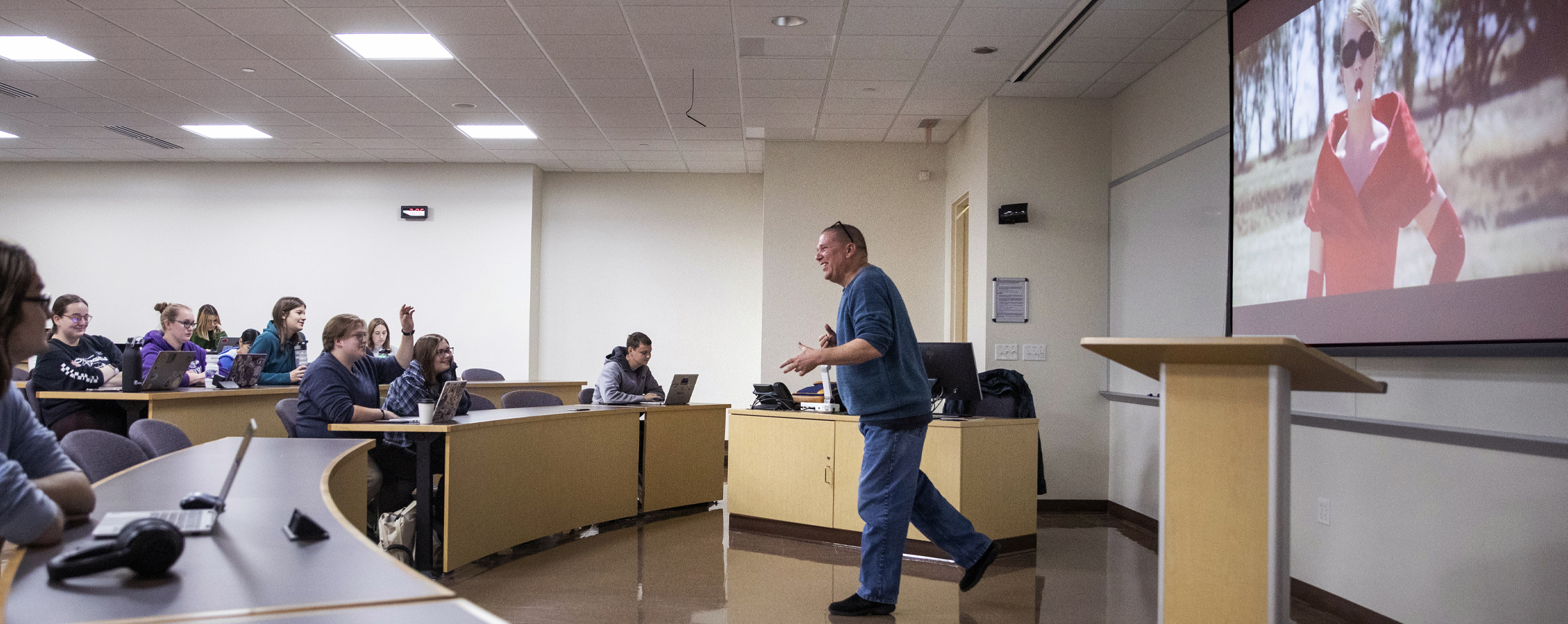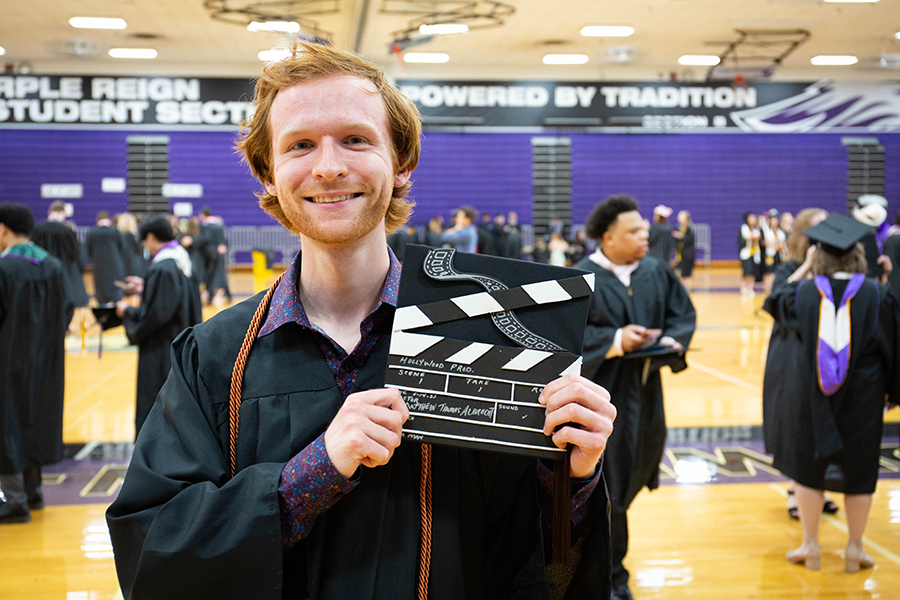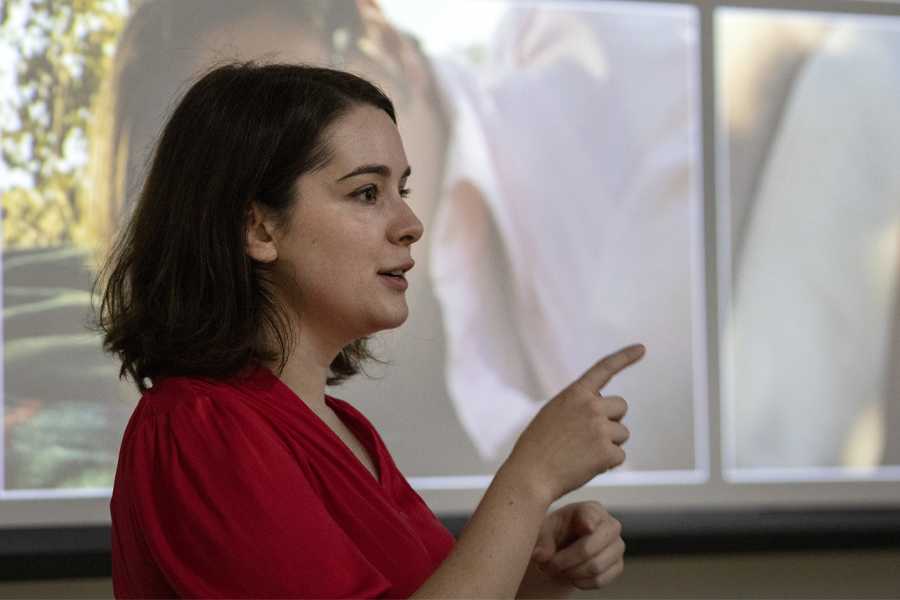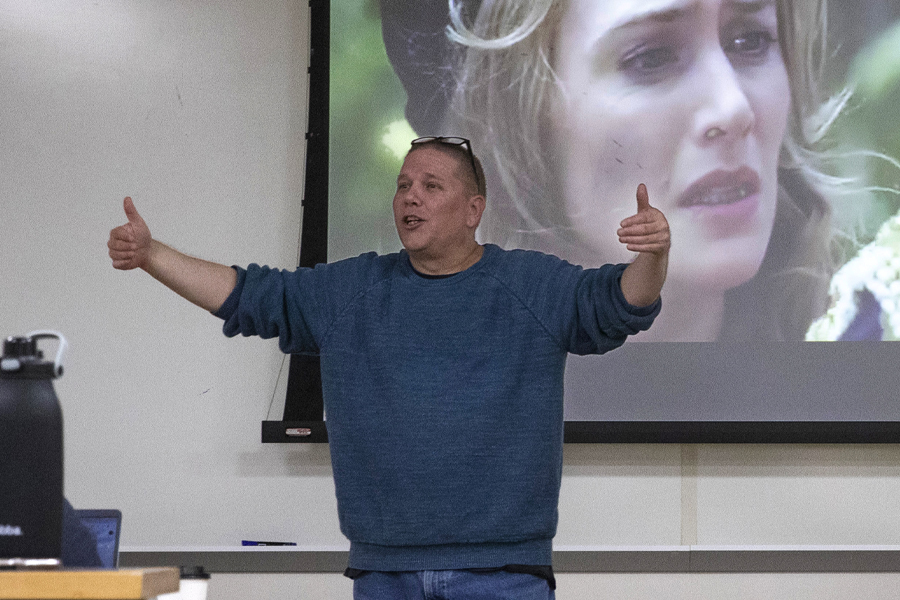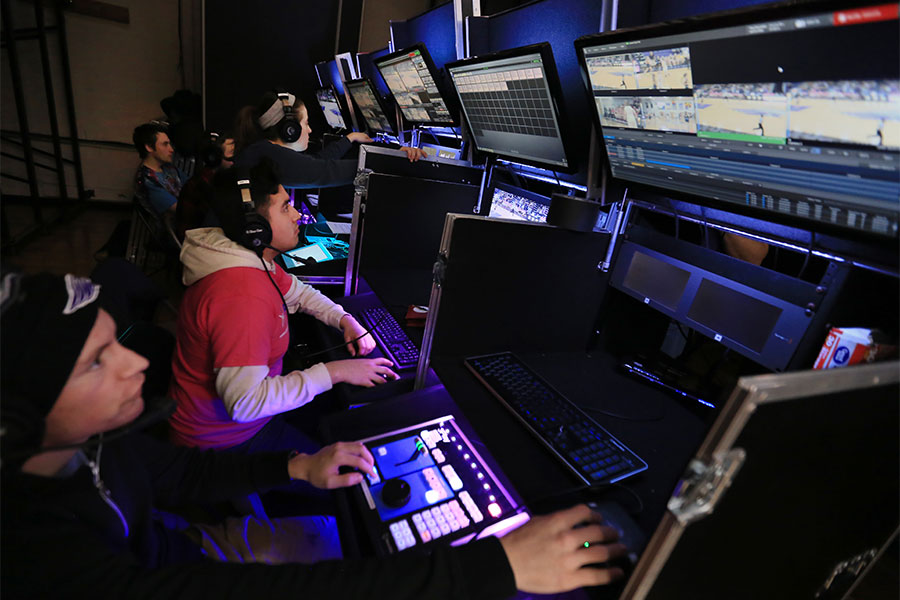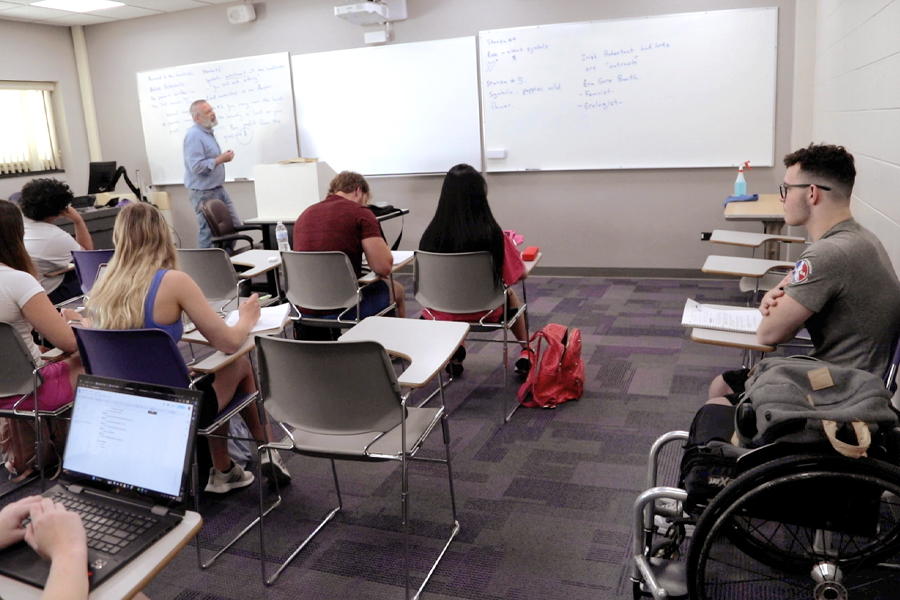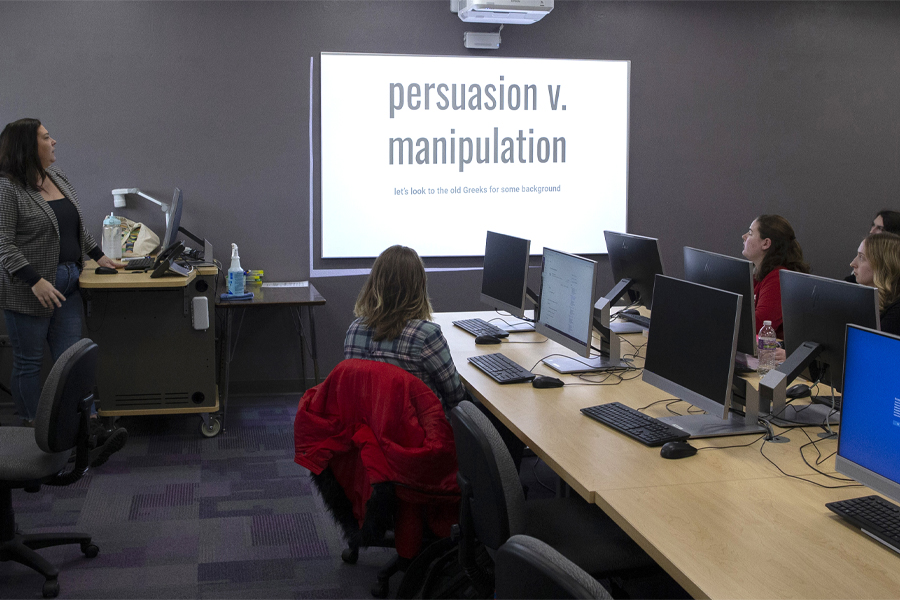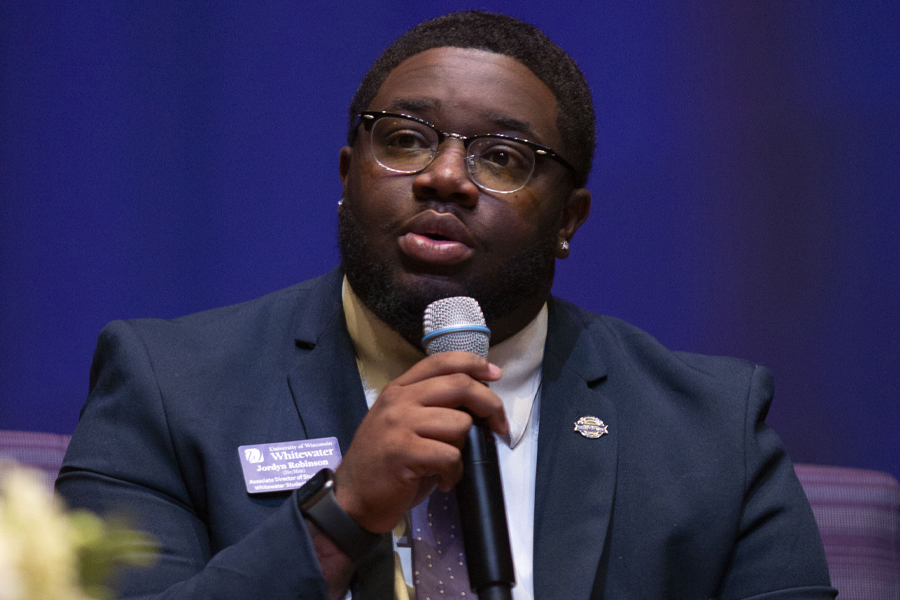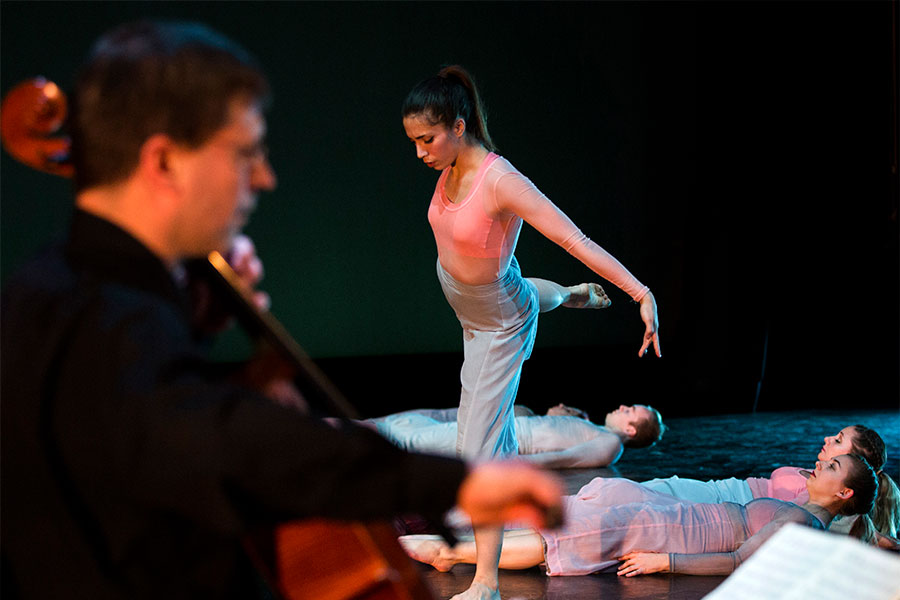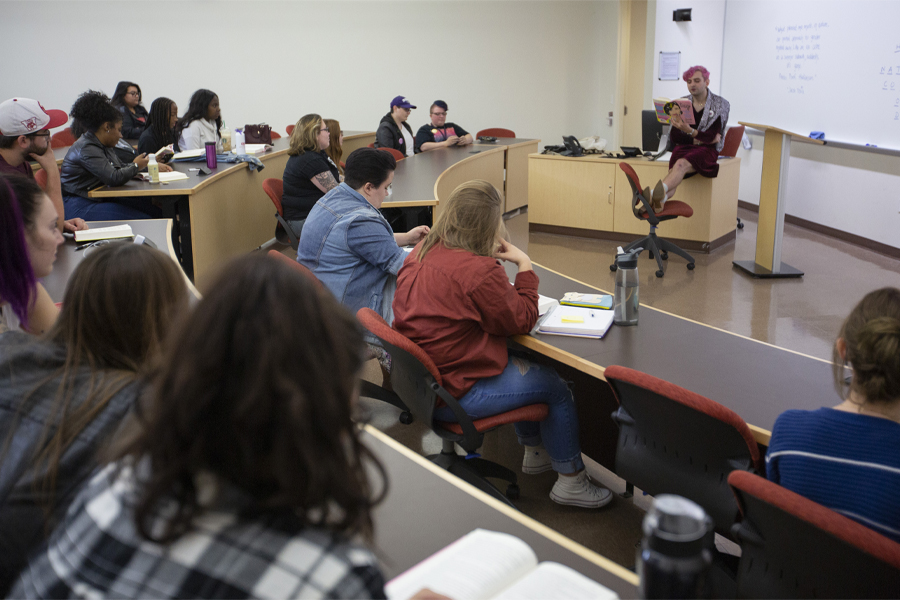FILM STUDIES
Bachelor’s Degree Programs
Lights, camera, action! Visualize and create your own path.
Do you love watching movies and have an interest in making them? Do you want to critically view, analyze and interpret visual media? Would you like to create, teach, market or write about moving images? A major or minor in Film Studies may be for you.
Film Studies prepares students for a variety of careers and further education opportunities by providing foundational instruction in the analysis of visual narrative. Dozens of career fields rely on knowledge of digital media and visual narratives, including fields in the arts, business, journalism, writing, education and more.
According to the U.S. Bureau of Labor Statistics, jobs in production and direction of film, television, stage and other productions will grow by 8 percent between 2023 and 2033, one of the fastest growing occupations in communications-related fields. The motion picture and sound recording industries employ more than 415,000 people – a number that is expected to grow in the coming years.
CAN WE BRAG A LITTLE?
Why major in Film Studies at UW-Whitewater?
In Film Studies courses, you will learn to interpret films to better understand film history, styles, genres, and cinematic technique. As a Film Studies student, you'll assess the medium of film in interdisciplinary courses, learning methods of film analysis that take account of the conventions of filmmaking and putting your learning into practice in forms such as interpretive essays, screenplays, and short films.
A major in Film Studies also gives students opportunities to cross into several other disciplines on campus.
Communication (Electronic Media)
Put your Film Studies learning to use as you practice storytelling through video production, audio production, editing, storyboarding, film direction, producing, and other hands-on skills. Some of our most accomplished students have been double majors in Film Studies and Communication with emphasis in Electronic Media.
Creative Writing
Broaden your understanding about the writing process and the craft-based choices made by writers, develop your analytical abilities and work across genres to strengthen your writing through courses in Creative Writing. Combine your Film Studies knowledge with Creative Writing to build toward a career in screenwriting.
Journalism
Hone the storytelling skills you’ve developed for the news media. Today’s journalism professionals are skilled writers, photographers, videographers, sound technicians, editors and producers. Couple your Film Studies expertise with Journalism for potential careers in entertainment journalism, production development, and more.
Professional Writing and Publishing
Write creatively and analytically across multiple genres and workplace settings. Countless careers require professionals to write clearly and effectively. A Film Studies major coupled with Professional Writing and Publishing experience could lead to opportunities in production editing, creative direction, content specialization, project management and more.
What our Film Studies students do
Hands-on learning experiences
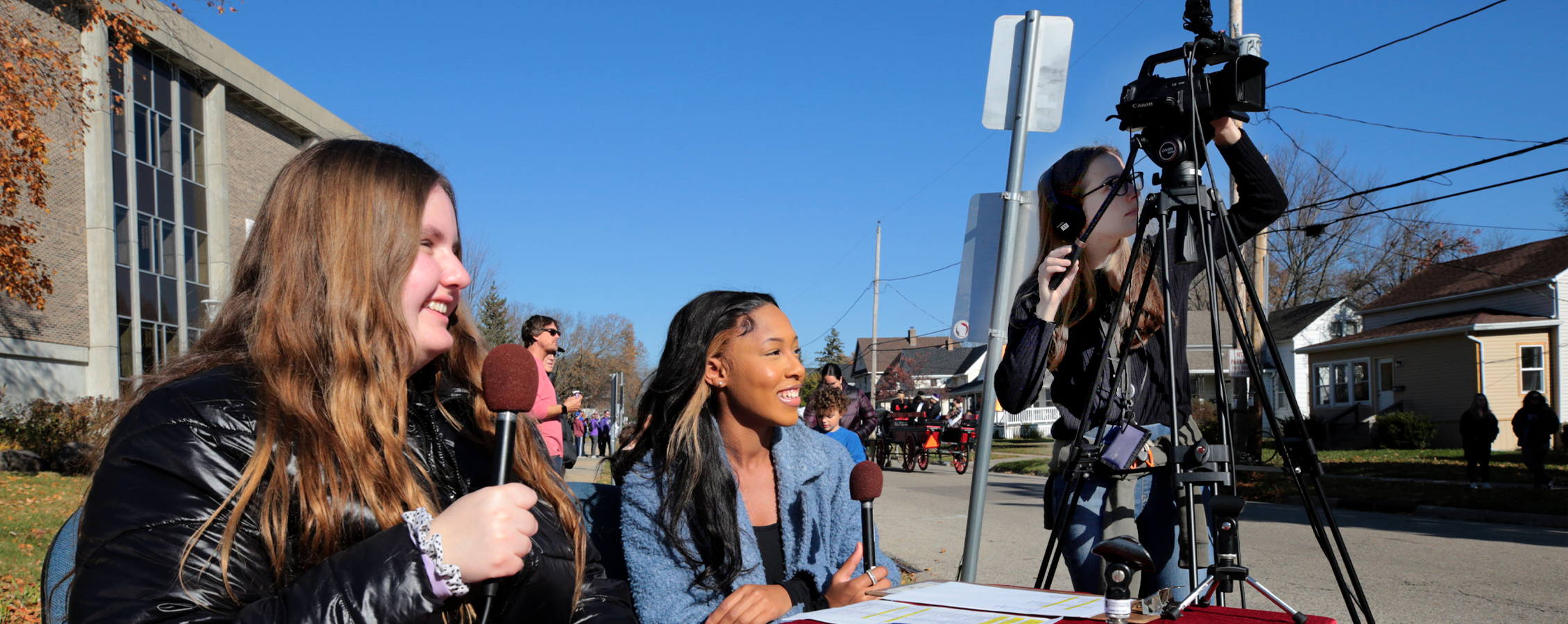
Video production
Film Studies majors have opportunities to build and enhance skills in video production. There are three options to gain hands-on experience in video production:
- Video production certificate
- Communication (Electronic Media) minor
- Film Studies and Communication (Electronic Media) double major
Prior experience is not required to get involved either on camera or behind the scenes.
Documentary filmmaking
Starting in the 2024-25 academic year, Film Studies majors will have the opportunity to participate in a documentary filmmaking course sequence. Students will develop skills in project management, production and post-production applied learning.
Student publications
Build your resumé and collaborate with fellow students on “Reading Film,” a journal of outstanding essays on film and television written by UW-Whitewater students.
Film festival opportunities
With its central location, UW-Whitewater is close to multiple film festivals and film organizations, including:
Campus and community involvement
As a Film Studies major, you might be interested in participating in the UW-Whitewater Film Club, Hawk Cinema.
Our Film Studies majors and Communication (Electronic Media) majors are launching a chapter of the Alpha Delta Phi Society, a gender-inclusive literary and arts society. Participation in this group underscores our interdisciplinary commitment to narrative study of all kinds and our commitment to fostering a welcoming, safe and inclusive place.
What our graduates do
Careers: What can you do with a Film Studies degree?
After earning their degree in Film Studies, UW-Whitewater graduates find a variety of positions in various sectors. Here’s just a sample of titles and companies:
- Video Production Specialist, Image Studios
- Assistant to the Executive Director, Beloit International Film Festival
A Film Studies degree opens the door to numerous professions and career paths:
- Screenwriter
- Producer
- Director
- Production assistant
- Editor
- Production designer
- Journalism
- Corporate communication
- Social media
- Marketing
- Educational media
Our Film Studies faculty
The Film Studies faculty and affiliate faculty draw on a wealth of experiences and talents to help students gain real world knowledge and skills.
Anna Hajdik, senior lecturer of literature, writing, and film, is UW-Whitewater’s unofficial resident expert on the Academy Awards. Hajdik, who teaches courses in film studies and English, successfully predicted 2025 Academy Award winners for Best Actor and Best Director, and was 3-for-3 in major Oscar award predictions in 2024.
Watch Anna's predictions »
Want to learn more about earning a Film Studies degree?
Contact Donald Jellerson, Film Studies Coordinator | jellersd@uww.edu
UW-Whitewater offers the following Film Studies undergraduate options:
Minors:
Certificates:
In addition to UW-Whitewater’s general education requirements, as a Film Studies major, you’ll take a variety of core and elective classes that will vary based on your interests. Here’s an example of classes most Film Studies majors will take:
- Film Theory
- History Through Film
- Gender and Film
- Great Moments in Cinema
- Race, Ethnicity and Film
- Literature on Film
- Topics in Film Studies
- Sex, Gender, and Television
- Screenwriting
- Media Criticism
To apply, you’ll complete the UW-Whitewater standard application for admission and indicate your interest in earning a Film Studies degree.

